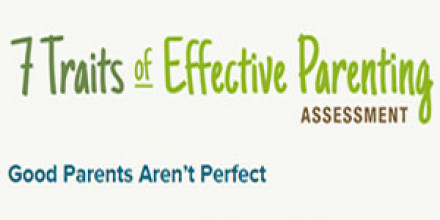Dr. Kenneth Wilgus: I call it planned emancipation. Planned emancipation is you taking the reins and, uh, marshaling an orderly retreat out of your teenagers’ lives.
John Fuller: Well, if you have teenagers or preteens, stay tuned, because we have a plan for successful parenting that you won’t want to miss. Welcome to a Best of 2022 episode of Focus on the Family. Your host is Focus president and author, Jim Daly, and I’m John Fuller.
Jim Daly: Our listeners loved this message from Dr. Ken Wilgus when we aired it in August, so we’re bringing it back in case you missed it. Dr. Ken will be sharing a firm yet friendly strategy that will help you actually prepare your teens for the responsibilities of adult life. Uh, Dr. Ken is a psychologist, author, and speaker who specializes in adolescent behavior, and he has a private practice in Dallas, Texas. His book is called Feeding the Mouth That Bites You, and he’s been in the studio with us, John, a couple times in the past.
John: And, uh, this time we’re sharing a presentation he gave to a big crowd of parents at an event sponsored by Christ Church of the Valley in Phoenix, Arizona. Here now, Dr. Ken Wilgus on Focus on the Family.
Dr. Wilgus: So, here’s what we’re gonna do, is that there’s kinda two parts. The first thing is that I wanna talk to you about what is close to a magic thing that you need to know. There is a thing that if you… and it’ll take about 15, 20 minutes for you to be enlightened. And if you know this thing, it is the closest thing to a key to unlock and do-, be more effective with your teenagers. I’m not kidding. So, it’s important that I really want you to think about this. Because, um, the parents that know this, the teachers… I’ve done teacher training. The teachers that know this can be much more impactful. And those that don’t just, it’s just a struggle. So, then after I do that, Dustin’s gonna come up and we’re gonna, he’s gonna ask a bunch of questions, so that we get to specifics.
But the first thing is for you to understand something about your teenager, and it was the thing that I first understood when I- I-… it must have been the first day in adolescent psychology class. When the teacher said, “Now, of course you know that, uh, modern adolescence was created about 100 years ago, and the term teenager was invented around 1942.” And the class just sat there. And I was like, “What?” What he’s talking about is something that is critical for you to know. When you think about teenager, with the things we joke about… surly, argumentative, emotional, uh, rebellious. All those things that we think about. 150 years ago no one would know what you’re talking about. A 13 and 14-year-old boy was out working with the men, a 14-year-old girl was very likely married and pregnant. This is a new thing, and it’s important that you know that. This was created. And what’s been created… and there’s many books about this, but the clearest example is that, or statement, is that we have artificially extended childhood to a- a very, very long, never ending stage. You are living in a culture that does now know how to translate its children into a- a- adults.
An- and it’s gotten worse over the years, and this has been going on. It was there with your parents and your grandparents, but it’s gotten worse and worse. It went from… What we do in America is you have a thing you can’t fix, you make a movie out of it. So we had Rebel Without a Cause, and then it becomes Failure to Launch. It just gets harder and harder.
So, here’s the thing that you need to know, and I am not kidding. The thing that was known all around the world for all of time, and it is this… Childhood comes to its natural end by about the age of 13. That is virtually when it is over. It does not mean your job is over, but this is the part that I cannot emphasize enough… your job changes because teenagers are not old children. They are very young adults. Now, don’t panic, they’re very young, very poor adults. They own nothing.
Audience: (laughs)
Dr. Wilgus: You know? And they’re very inexperienced. But they are, and they have crossed over into adulthood. Your job will change from teaching to training, and the most common mistake that parents make is using childhood parenting techniques with adolescents.
When he was seven, or, no, 10, he never liked cleaning his room. And we’d say, “You know, Justin, I mean it. You need to get in there and clean your room,” and he would finally go in there. Now, he’s 15, and I- I think there’s a hearing issue, I don’t know. But he, we have to scream at him. And even then he says, “Just a minute.” What- what is this? A cognitive thing? He has changed from possibly a strong-willed child to an adult that really, is really wanting the answer to one question. And I want you to think about this question. Somewhere in every teenager’s soul is the question, “Hey, I’m beginning to look and think and act more like an adult. When will you say that I am completely an adult, the same as you?”
Now, I want you to take a minute. Don’t compare your answers, but think about it. When would you say that this child of yours is at your point, at your level, an adult? Got your answer? Fix an answer, because I’m gonna tell you… wh- there’s three answers in this room… usually, almost always. One is, uh, an age… 18, 21. It’s usually a dad. That’s like, it’s clean, it’s easy, whatever, okay?
Audience: (laughs)
Dr. Wilgus: But that’s not most of you. Most of you will then throw the other one, which is the, what I call the under my roof theory. “Well, as long as I’m paying for it, then, you know, it’s- you’re gonna answer to me.” Wha- right? And then there’s many of you, the more sensitive ones, that’s the know it when I see it. When she shows us that she’s got the c-, the respons- whatever your thing is.
Audience: (laughs)
Dr. Wilgus: And that’s virtually always what we answer. But you’ll notice, we don’t all have the same answer, because we live in a culture that doesn’t give a clear answer to a very good question.
There are problems, by the way. You think the age thing is dopey. It’s not as dumb as you think. For the ones that are the under my roof category, do you know what a boom-a-ranger is? Okay, those are young adults that have left home, and then for divorce or whatever, they come back home, and they’re living at home. And they’re under my roof. And, uh, you know, we’re still… they’re very cooperative, because they’re not doing anything. And maybe a little job… you know, and is that an adult? Because under that theory, no, they’re still not… Yeah, they’re an adult. That 30-year-old at home is an adult. Thank you. That’s… right?
Audience: (laughs)
Dr. Wilgus: The know it when I see it, right, whatever your thing is. Don’t you have uncle so and so that’s like 50, and he never learned that, he’s not that either. What you’re doing is you run into the problem of I am waiting for my teenager to show me when they’re done. Like the very old kung fu show that the guy would say, “You’ll know you’re ready to leave the temple when you can snatch the pebble out of my hand.” What if they’re not even trying to snatch the pebble out of your hand?
Audience: (laughs)
Dr. Wilgus: “Seriously, give it a shot. I won’t even look. Go ahead.” It’s a problem where we wait for them. And what is- needs to happen is that instead, like all of history, you can make your household work against that confusion. You can put in place in your house, an orderly retreat from control, and instilling the message that in this house, you will grow up, you do not have to get away.
And one of the things that is interesting when I talk most, very often to Christian, uh, families, is that Christians tend to have a percentage of families that are the ones that you just have to get away. Because of fear, and some sense of what God is requiring of me… whatever. And I don’t know if you’ve noticed, but our faith is looking more and more ridiculous to the world. It’s getting darker out there. And we cannot afford to be producing, uh, kind of obedient, weak-willed adults who don’t know what they think and have never really practiced. They need to be ready. Don’t you think? For the- the kind of assault that they are given. And this is critical that Christians do this.
So, do you understand now that your teenager is not an old child? He and she are a young, they are a young adult. You should think of a teenager as an adult in training. And your task is to move them on. And how do you do that? So that’s number one. You’re now enlightened, got it? You will, you will be the one to, instead of them prying control out of your cold, dead hands, you will instead give it over in orderly pace that makes sense to the you’ll know.
So how do you do that? I call it planned emancipation. Planned emancipation is you taking the reins and marshaling an orderly retreat out of your teenagers’ lives. It is sort of like… and I don’t mean giving more privilege with responsibility. That’s good with children, like the, uh, there’s a whole series of Parenting with Love and Logic, uh, Jim Fay…very good series. That some people go, “Well, it’s the same thing.” No. Uh, what you’re doing is that you have put in a s- essence, a clock on the wall that is now ticking down to the end of your job. 18 isn’t actually the end. The end is when they finish high school. That’s when they need to be ready. Even if they stay at your house, they need to be ready.
John: You’re listening to Dr. Ken Wilgus on Focus on the Family. And, uh, just a reminder, we’re encouraging you to get his book, it’s called Feeding the Mouth That Bites You: A Complete Guide to Parenting Adolescents and Launching Them Into the World. And when you get that book from us, we’ll include a free audio download of Dr. Ken’s entire presentation with extra content. Donate today, uh, be generous as you can, and request those resources at focusonthefamily.com/broadcast, or call us. Our number is 800, the letter A and the word FAMILY. 800-232-6459. Let’s go ahead and continue listening to Dr. Ken Wilgus.
Dr. Wilgus: So, planned emancipation is essentially, it’s, like… think about it this way. Your teenager feels like an occupied country. So, picture a nation with your kid’s name on it, you know, Brandon or whatever, this is, you know, my kid’s… And, and it’s divided up into states, little a- territories called friends, clothes, school, money. These are different areas, discrete areas, of control and management. You understand? That’s the map. Now, I want you to mark and kinda scribble in each state where you are still in control of it. This is where your troops are occupying their territory. That’s how teenagers feel. They don’t get rebellious, they actually feel like you don’t need to be in this business, this is not your business.
Did you know teenagers… this’ll stun you. If you ask many teenagers, “Did you finish your homework?” They’ll say yes, but here’s the thing, they didn’t.
Audience: (laughs)
Dr. Wilgus: They will, they will lie to you, and it’s not uncommon, they don’t even feel guilty about it. “Dr. Wilgus, I- I think it’s a social… is he a psychopath? How could he…” No, there is actually normal lying. Normal lying is essentially a passive war against you. And I’ll tell teenagers, I’m like, “Dude, you didn’t need to be lying. You need to have the guts to tell your mom what you think, which is, ‘I don’t think this should be your business, and I don’t want to tell you the truth. And you can’t really find out.’” That’s what teenagers… you’re an occupying army in their territory. Does that make sense?
So, what you do is that you announce… at the beginning of adolescence, you announce that, “We are going to be retreating out of your life one state at a time, and we will be gone.” And you wanna keep re- letting them know that. “You will grow up here. The answer to most all of your questions is never no, it is not yet. So if you want to be able to do this and that, not yet, but it will come to this point.” And the more that you give over freedom… Freedom is not, uh, “I will give you a chance to do it, and we’ll see how it goes.” Freedom is, “This is no longer our business. This is up to you and God, and we are out of it.” And you pull your way out so that eventually, that map, they are in control of all of that. Does that make sense?
I’ll give you some examples. And just so you know, that’s my wife… Sally, stand up, wave. Sally, 40 years we’ve been married. Thank you. And that poor woman had to put up with all of this stuff, with this mad scientist husband of hers, that we did all this stuff. So for example, when our kids turned 13, among whatever present they got… “You no longer have to keep your room clean.” Stay with me. I’ve had mothers bring a photo going, “You mean this room?” And, you know… don’t bring up asthma either. They’re not gonna die, don’t do that. You don’t need to keep your room clean anymore. With freedom always comes responsibility. That’s, “You know where the washer and the dryer are. You’ll be doing your own laundry. You don’t want us going in messing with your stuff. It’s now up to you. Oh, and you can keep food in there if you can afford an exterminator. But since you cannot, I’ll probably charge you 50 cents or a buck for any plate, whatever, left back there.” Almost like a landlord.
But here’s the thing. Number one… you may know this. Do you know how much conflict and just strain goes on just to try to get the room clean?
Audience: Yes.
Dr. Wilgus: And then you work your head off. Have you been to any freshman dorm in this country? Boys’ dorm? They’re all raised in barns, apparently.
Audience: (laughs)
Dr. Wilgus: You know? For them, it’s their first room. So what… but again, listen to me. This is not you giving up. I would ca- recommend to you that if you understand, if you pay attention, it will increase your effectiveness with this teenager. Because now, you will not be shielding them from the natural consequences of a dirty room. The first time he comes out and goes, “Quick. I gotta have this ironed for the concert today.” You sit with your coffee and go (laughs), “That’s a bummer.”
Audience: (laughs)
Dr. Wilgus: And nothing. And you, you know, you’re like, “Do you remember when we… Yeah, we did that.” I’m not going to rest. That’s worth 10 cleanliness is next to godliness speeches. It’s just the real thing. And that’s an example of training. And yeah, we did that early. The room is an easy one that starts early. Uh, 13. There’s other things. I’ll tell you one that you should start whether (laughs) you like it or not. Your kid needs to be told, your teenager, that what you listen to in music is up to you. Do you know why you need to give that freedom? Because they are listening to whatever they want to.
Unless… any Amish families here?
Audience: (laughs)
Dr. Wilgus: If not, then you’re just looking silly with your, “You can’t use explicit lyrics,” thing. It happens in my office all the time. 15-year-old girl. Parents going, “Oh, no. We don’t let her listen to that kind of music.” And I look at her, and she looks at me. And we’re both going… basically, “Are- are you gonna tell them? I’m not…” YouTube has every single song ever put out. You cannot control that. So instead, because this is oxygen for your teenager… “When will you say things are up to me?” You wrap it up and make it a gift. No longer, it’s now up to you, between you and God. And there’ll be all other things too that you orderly give over every six months, every year, until you’re done. The last one will be curfew. The day after they graduate, you need to let them know, “You don’t have to come in at any specific time at our house.” Because that’s a, a given. But everything else, you think about.
Choice of friends, how you dress… you can divide that into style of dress. But for our girls very often, we still control modesty and so forth. But then at a point, you let go of that. How they manage their money. All kinds of it. School. I will not micromanage school. But that’s what planned emancipation looks like. But here’s the thing you need to know. That for many parents, you’ll think what I just said is, “Just get them an apartment and a car, and just do whatever they want.” That is not what I’m saying. That is a false dichotomy that thinks that parenting is control and teaching. And there are tons of parents that think that’s basically what I’m here for. That God has given me this child and stepped back and crossed his big fingers, and hope that I don’t screw it up. That is not our faith. You’re not with your teenager right now, but Jesus is. The spirit is there. And he’s not really needing your help. You get to participate in this. And how you do it, and the fear that comes with it, says a lot about your own sanctification. Your progress in the faith.
So, here’s the thing you need to know. When you’re doing this, that is the thing. This need for individuation. Your teenager needs… individuation is the answer to that question. “I need to know when I am free o- of your control, and I am an adult.” And there is no other need that is equal to that. That is the primary. And what you see, what we call normal teenage behavior… is teenagers, when we’re stepping on their air hose of any kind of respect and, uh, freedom. And they’re pushing back. And- and we’re going, “Look at them flopping around there. What’s the problem?” Step, get off the air hose. Give them some freedom, some respect.
And here’s the effect that it has, and this is important. Two areas… communication and discipline. The first one, because it’s more important, is when you’re stepping out of their life… when you are announcing, “Oh, yeah. I forgot. That’s up to you. That’s your friend. I wouldn’t be friends with that guy, but hey, that’s your call.” When you’re regularly doing that, then it changes your communication in ways that many of you haven’t even thought about. Do you realize that when you stop pretending to be controlling their music, for example… you are then free to go, “Hey, can I look at your li-, your playlist?” And you can talk about it. If they’re defensive, you go, “Dude, I already told you. That’s up to you. I just want to see what your wa-, you’re looking at.” And then you can talk openly.
“Do- does it bug you to listen to Kendrick Lamar on the way to church or is that okay with you? Doesn’t it…” And you can really talk through things… that some of you have never had that. You may have never had it with your own parents. But that kind of communication is important, and it a- affects their behavior more than control. Communication is critical. It’s more important first than discipline, because it’s communication that will take you into adulthood. Many of you know that even now, you can barely talk to your parents. Sometimes parents still try to control well into adulthood. Some of your parents are telling you how to t-, how to parent right now. And not respecting what you’re doing. You’ve seen all this. That’s pretty common. We’ve been confused for a long time. But you can, uh, instead, communicate with your teenagers. When you’re pulling out, it very often opens up the floodgates of communication.
Teenagers want to communicate with you, but there’s pretty common problems. If you haven’t guessed already, the most common communication problem you have is the control battle. “You can’t make me talk.” And don’t tell me you haven’t tried, right? You’ve done that thing where it’s like, “We’re not leaving this room until you tell me what is going on.” You can’t make that happen, because it is always by invitation. And the key is, you don’t have to make that happen. By being, uh, free with this, it makes it much easier for them to talk to you. So, make sure they know that you know, that I’m not trying to make you talk to me about stuff. I just miss you, and I wanted to find out what’s going on.
See- I’ll- I’ll give you a psychology secret. Uh, when kids, teenagers come to my office, I always do the same thing. I always go and talk to them first… ’cause parents are always like, “Sorry.” But you introduce yourself, and they’ll, they’ll say that… you come into my office, and I say, “So, when did you find out you were coming here?” “Ten minutes ago.” “That’s what I thought. Your parents were afraid to tell you?” And- and so, I do all that. The parents leave. And I’ll tell the kid, “There are four rules in my office. Rule one, you don’t have to talk to me about anything unless you want to talk about it. You- you can just tell me, ‘I don’t want to talk about that.’” That’s a rule. Well, that’s just obvious. Like, I can’t make… but I want this kid to know that I know, that I’m not gonna be making you talk to me.
“Second, you can talk about anything in here. You can’t bring up something that’s gonna shock me. It’s been a long time. Third, whatever you tell me, whatever you talk about will stay in this room. And fourth… there’s a couple of exceptions to rule three. If you tell me you’re going to kill a guy or hurt yourself real bad…” but I- I’ve outlined, and, and they just talk. It’s that simple. But what I outlined was a couple of important things. “One, I am not gonna battle with you about this. And you can do that same thing. I understand that if you don’t want to talk to me, I cannot make you talk to me.” And the other is, “You can trust me that I will not tell people that you do not want me to tell.” And that’s important as well. And then communication is, uh, is much easier.
I will also tell you that speech making is not communication. And don’t tell me you haven’t made your speeches. Some of you are really good at it. You love to kinda… you’re like an op- coin machine. They just put in politics, and you’ll start in… “You know, politics…” And you go in, and they just glaze over. Because you want to tell them what you… uh, and you really feel like, that’s what I’m doing the right job is as a parent, by teaching them. And it’s normal that they look like they’re not paying attention. Well, I have news for you. They’re really not paying attention.
Audience: (laughs)
Dr. Wilgus: Parents will tell me… Parents love to tell me their speech. “So, so she came in at 12:30, so here… I let her have it. I said, ‘There’s rape that goes on.’” And- and it just, just lays it out there. And then I’ll go… I’ll interrupt them, and he’ll go, “Wait, wait…” He wants to finish telling me the speech, all right? And then I always ask at the end of the speech, “So, what was your kid’s reaction?” And that’s my favorite. “Well, he didn’t say anything, but you could tell he was really thinking.” Really? Really?
Audience: (laughs)
Dr. Wilgus: ‘Cause that kid will come into my office in 30 minutes. And I’ll go, “Hey, your dad told me he kinda le- let you have it Friday.” “Friday?” “Yeah. You don’t reme-…” “Oh, yeah. That was… Anyway, I gotta talk to you about something else.” Nothing. Not there at all. Speeches are not communication. That’s not what we’re talking about.
John: We’ve been hearing some great strategies for parenting your teenager from Dr. Ken Wilgus on this Best of 2022 episode of Focus on the Family. And we’ll continue this presentation next time, which includes questions from the audience.
Jim: We will, John, and that content gets very practical. And speaking of practical, I know you’re gonna want to get a copy of Dr. Ken’s book called Feeding the Mouth That Bites You: A Complete Guide to Parenting Adolescents and Launching Them Into the World. It’s based on Ken’s 30 years of work with children and their families, and contains many more details and tactics that you can use in your own family. And let me encourage you to get a copy from us here at Focus on the Family, where the proceeds go right back into ministry, not into shareholders pockets. As we close out the year, I hope you will join us as we continue to provide help and hope for parents who need guidance. Parents like Andrew, who said, “I love the Focus on the Family app. As a father of four, I appreciate the insights that have helped me navigate the challenges of today’s culture. You’ve helped me understand what my kids are facing and how I can adapt to their constantly changing moods. Thanks, Focus.” And let me add a big thanks to donors like you who made it possible for us to launch our app a few years ago. Providing free access to this broadcast, plus several podcasts to families around the world. We couldn’t have done it without you and your support. And if you’re not a donor, can I ask you to pray about that? We really do need your support. And when you make a donation of any amount, we’ll send you the copy of Feeding the Mouth That Bites You plus a free audio download of Dr. Ken’s entire presentation, including the full question and answer time with the audience. And right now, special friends of the ministry are offering to match your donation dollar for dollar, so your gift will have twice the impact. Get in touch with us today.
John: Yeah, donate and request your book and audio download with that extra content at focusonthefamily.com/broadcast. Or call us, and we can tell you more… 800, the letter A and the word FAMILY. 800-232-6459. When you’re online with us, look for the seven traits of effective parenting assessment. It’s a free parenting quiz that will help you identify strengths and weaknesses in your, uh, role as a mom or a dad. It’s gonna offer some follow-up resources. It’s really engaging and very enlightening. Next time, Dr. Ken Wilgus shares from his heart.
Dr. Wilgus: My biggest concern for your teenagers is isolation. I cannot believe in 30 years how, what’s happened to social relationships.





















